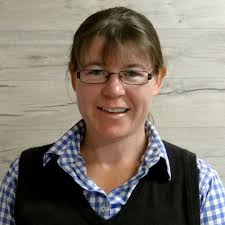The potential of Australian soils to sequester carbon and offset emissions is a hot topic right now. But how do you go about building soil carbon?
Join us to hear from Dr Cassandra Schefe, a leading soil science researcher, for the next webinar in our Road to Net Zero series, Understanding Soils.
Dr Schefe will take us back to basics, explaining the relationships between different soil characteristics and their contributions to a soil system. She’ll then take us through how farmers can use this knowledge to achieve an increase in carbon.
The Road to Net Zero webinar series explores the reasons for reducing emissions, the different solutions available and industry progress towards carbon neutrality. Soils are a very complex and integral system, so keep an eye out for more Road to Net Zero webinars on the topic.
Speakers

Dr Cassandra Schefe
After completing a Bachelor of Agricultural Science (Hons) in 1999 at The University of Melbourne, Dr Schefe was employed by the Department of Environment and Primary Industries (DEPI), Victoria as a research scientist in soil chemistry. Cassandra specialised in soil chemistry and soil-plant interactions, completing a GRDC-funded PhD with Monash University on the interactions between carbon and fertilisers in improving nutrient availability in acid soils. Further research was conducted on understanding how nutrients and soil interact using synchrotron techniques, identifying mechanisms to improve nutrient supply, and determining the impact of source and process on the quality of organic amendments.
In 2014 Cassandra left DEPI to establish ‘Schefe Consulting’, and to continue working with farmers through part-time employment with Riverine Plains Inc. Within ‘Schefe Consulting’ Cassandra has partnered with a range of fertiliser and mining companies to develop and field test new fertiliser products, conducted synchrotron research with the University of New England and Southern Cross University, supervised PhD students at Monash and Melbourne University, worked with councils and water authorities to manage waste products, advised corporate farming entities on the management of soil constraints, and established an industry program to reduce greenhouse gas emissions in cropping, in partnership with Mars Petcare and the Sustainable Food Lab, USA.


